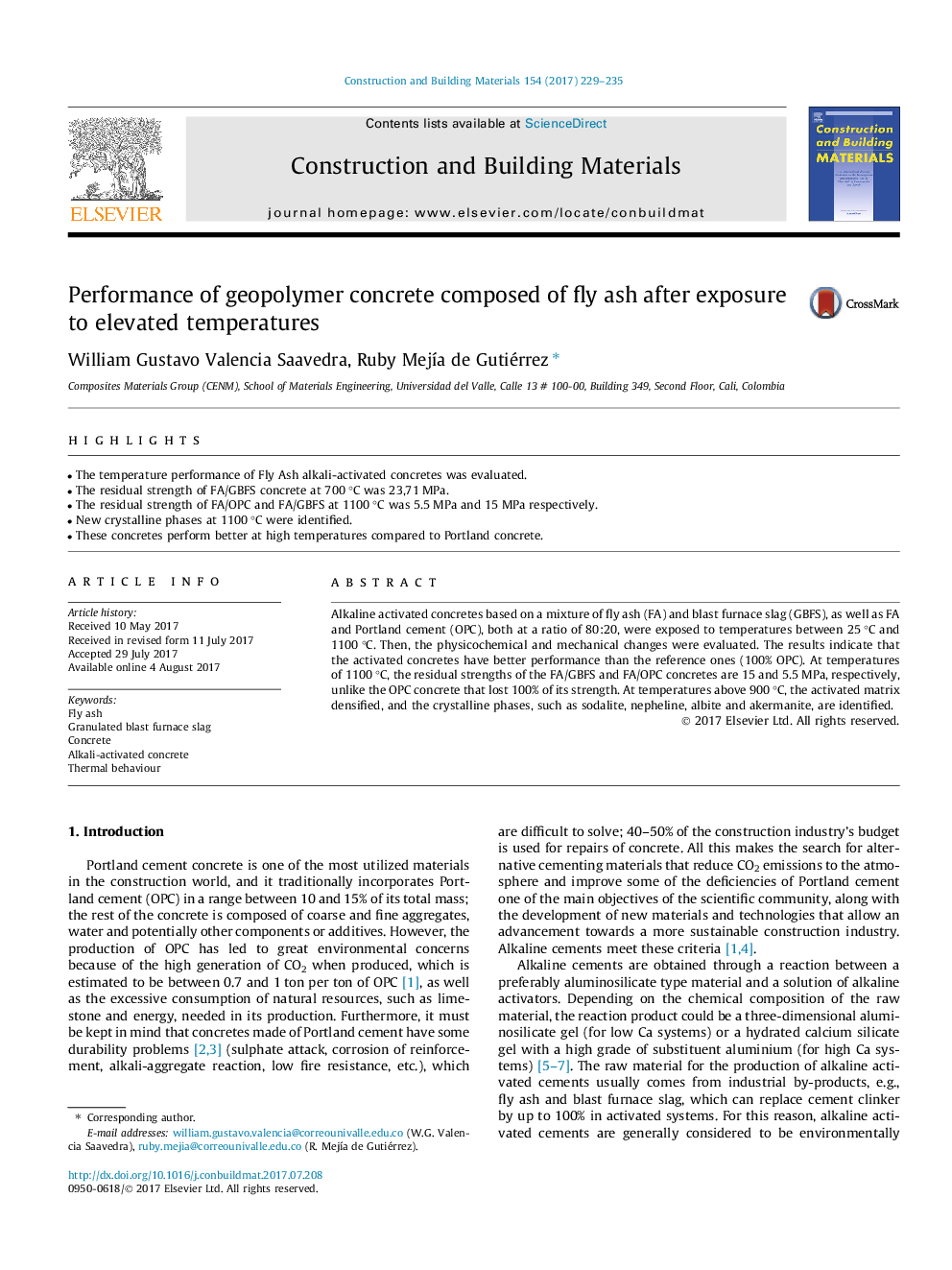| Article ID | Journal | Published Year | Pages | File Type |
|---|---|---|---|---|
| 6480083 | Construction and Building Materials | 2017 | 7 Pages |
â¢The temperature performance of Fly Ash alkali-activated concretes was evaluated.â¢The residual strength of FA/GBFS concrete at 700 °C was 23,71 MPa.â¢The residual strength of FA/OPC and FA/GBFS at 1100 °C was 5.5 MPa and 15 MPa respectively.â¢New crystalline phases at 1100 °C were identified.â¢These concretes perform better at high temperatures compared to Portland concrete.
Alkaline activated concretes based on a mixture of fly ash (FA) and blast furnace slag (GBFS), as well as FA and Portland cement (OPC), both at a ratio of 80:20, were exposed to temperatures between 25 °C and 1100 °C. Then, the physicochemical and mechanical changes were evaluated. The results indicate that the activated concretes have better performance than the reference ones (100% OPC). At temperatures of 1100 °C, the residual strengths of the FA/GBFS and FA/OPC concretes are 15 and 5.5 MPa, respectively, unlike the OPC concrete that lost 100% of its strength. At temperatures above 900 °C, the activated matrix densified, and the crystalline phases, such as sodalite, nepheline, albite and akermanite, are identified.
